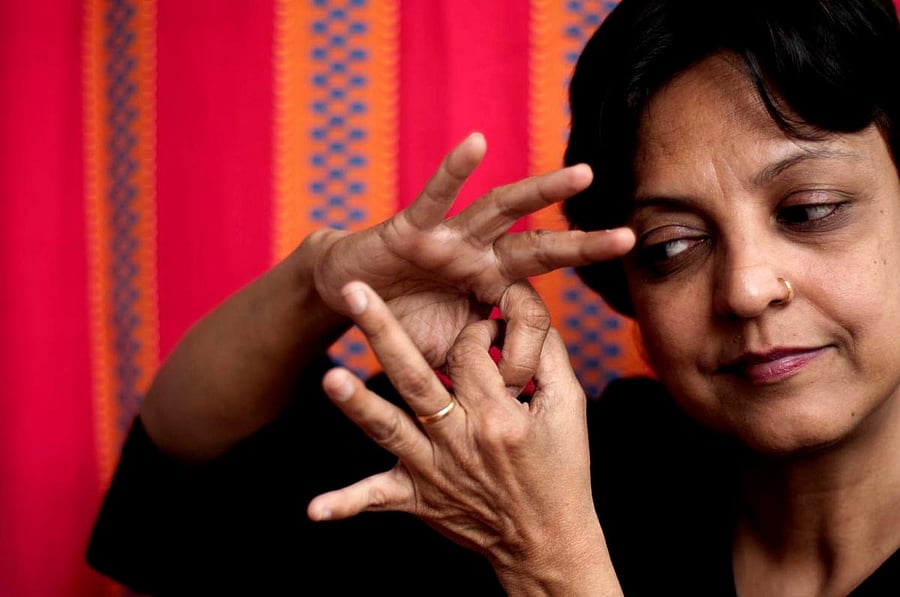
Dance has always been a part of Tripura Kashyap’s life. Her journey with Bharatanatyam began early, and later continued with rigorous training in Kalakshetra and a stint with the Chandralekha Dance Company before she transitioned to Dance Movement Therapy.
Tripura’s jump from a professional dancer to a movement practitioner was prompted by a deep, personal experience. Her brother, who was wheelchair bound with polio-meningitis, would use his hands and upper body to sway to the music. In the moments when Tripura joined him, she wondered about the possibilities of using movement experiences for people with physical and mental disabilities.
A chance meeting with Dr Grace Valentine, a dance therapist in the US, opened up an opportunity for her to train at the Hancock Centre for Dance/Movement Therapy in Wisconsin, USA.
Dance Movement Therapy (DMT) is a psychotherapeutic process that uses personal movement language and dance to improve various aspects of a person’s well-being. In a country where even talking and seeking help about mental and emotional health is stigmatised, DMT provides another practical avenue for individuals with mental health issues and special needs.
DMT is also as different from a conventional psychotherapy session as it is from other arts therapy like music, drama or visual art. “We work with the body to reach the mind,” says Tripura. “We let people express their thoughts and feelings through body movements, physical activities and games,” she adds.
DMT was already widely practiced in America but was unheard of in India. “When I came back to India in 1990, I noticed that a lot of people were a bit threatened by the word ‘dance’. So I started calling it creative movement therapy (CMT),” Tripura says.
The receptive and open crowd of Bengaluru in the 90s happened to be the perfect fit for this fledgling field. And contrary to expectations, Tripura’s initial workshops included more psychologists, social workers, therapists, teachers and special educators, even lay people, than dancers.
A multifaceted discipline
Training in this discipline involves the study of psychology, physiology, modern dance and movement evaluation and assessment. But one does not necessarily need to have a background in dance or psychology to take up DMT.
The main challenge she faced, however, was adapting her Western learning to the Indian context. This exploration was made possible by an Ashoka Fellowship early in her career. “Today, I use Indian dance therapy — a blended approach exploring therapeutic possibilities through our classical, folk and ritualistic dance forms — to help people bring out their own movement vocabulary,” she says.
It is also a fallacy that DMT practitioners tend to work only with people with disabilities. In her training programmes, Tripura noticed that even many able-bodied and able-minded people had problems with body coordination, eye contact and group awareness. “That’s when I realised that you could use DMT with anybody, right from the 2-year-old children to eldery. The scope is huge.”
Dance movement therapists work with people in prisons, deaddiction centres, corporates, special schools, regular schools and old age homes. Clients are facilitated both individually and in groups. But lack of funding remains a major issue for DMT.
This is something that Tripura tried to address when she co-founded Creative Movement Therapy Association of India (CMTAI) in 2014. Apart from strengthening the DMT ecosystem in India, Tripura has also adapted to the digital age by taking movement activities and therapy sessions online through CMTAI.
But more can be done. The need of the hour is an MA in Dance Therapy that could offer in-depth training to students, says Tripura. Increased funding for research projects in dance therapy and therapists working with NGOs could also help spread benefits of DMT to more people, she says.
Mapping Niches is a fortnightly series that sheds light on careers that are off the beaten track, through the eyes of professionals working in the particular field.
